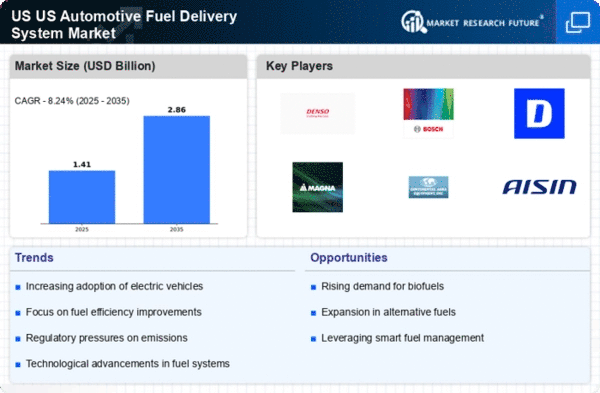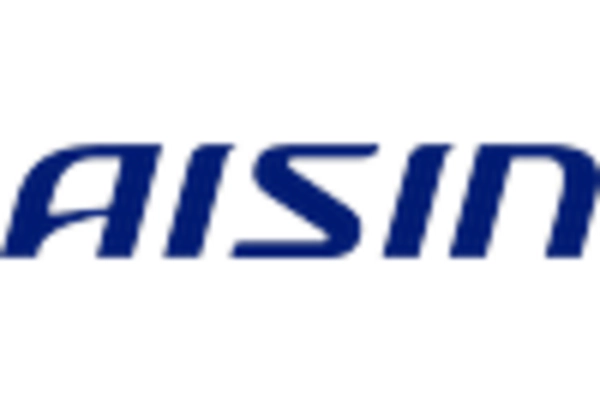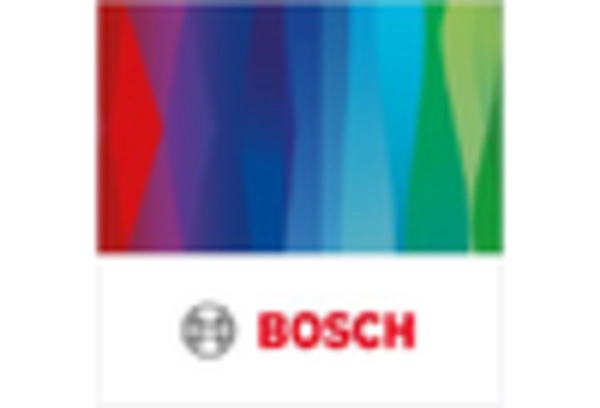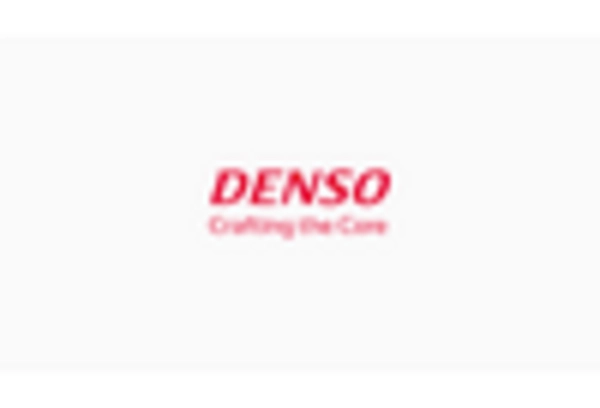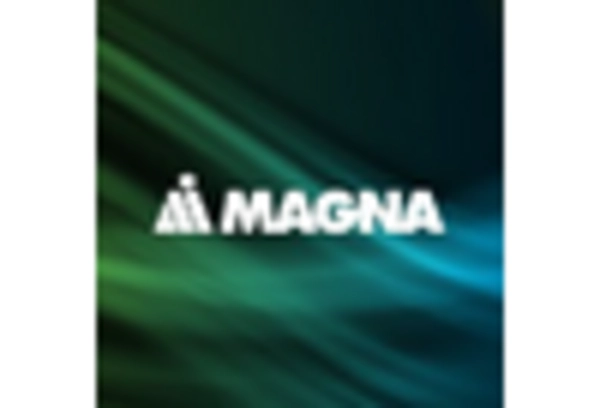Rising Demand for Fuel Efficiency
The US Automotive Fuel Delivery System Market is experiencing a notable surge in demand for fuel efficiency among consumers. As fuel prices fluctuate, consumers increasingly prioritize vehicles that offer better mileage and lower operational costs. This trend has prompted manufacturers to focus on developing advanced fuel delivery systems that optimize fuel consumption. According to recent data, vehicles equipped with high-efficiency fuel systems can achieve up to 30% better fuel economy compared to traditional systems. This growing consumer preference for fuel-efficient vehicles is likely to drive innovation in the market, as manufacturers strive to meet these expectations. Consequently, the US Automotive Fuel Delivery System Market is poised for growth as it adapts to the evolving demands of environmentally conscious consumers.
Growth of Electric and Hybrid Vehicles
The US Automotive Fuel Delivery System Market is also being influenced by the growth of electric and hybrid vehicles. As consumers increasingly adopt these alternative fuel vehicles, traditional fuel delivery systems are evolving to accommodate new technologies. Hybrid vehicles, for instance, require sophisticated fuel delivery systems that can seamlessly integrate with electric powertrains. This shift towards electrification is prompting manufacturers to rethink their fuel delivery strategies, leading to the development of hybrid-specific fuel systems. According to industry forecasts, the market for hybrid vehicles is expected to grow significantly, which will, in turn, drive demand for innovative fuel delivery solutions. This transition not only reflects changing consumer preferences but also indicates a broader shift in the automotive landscape, impacting the US Automotive Fuel Delivery System Market.
Increased Investment in Automotive R&D
Increased investment in automotive research and development (R&D) is a critical driver for the US Automotive Fuel Delivery System Market. As competition intensifies, manufacturers are allocating substantial resources to develop cutting-edge fuel delivery technologies. This investment is aimed at enhancing fuel efficiency, reducing emissions, and improving overall vehicle performance. Recent data indicates that R&D spending in the automotive sector has risen significantly, with companies focusing on innovative solutions such as alternative fuel systems and advanced fuel injection technologies. This trend is likely to foster a culture of innovation within the industry, leading to the introduction of more efficient and environmentally friendly fuel delivery systems. As a result, the US Automotive Fuel Delivery System Market is expected to benefit from these advancements, positioning itself for sustained growth in the coming years.
Regulatory Compliance and Emission Standards
The US Automotive Fuel Delivery System Market is significantly influenced by stringent regulatory compliance and emission standards set forth by the Environmental Protection Agency (EPA). These regulations aim to reduce greenhouse gas emissions and improve fuel efficiency across the automotive sector. As a result, manufacturers are compelled to innovate and enhance their fuel delivery systems to meet these standards. The market is projected to grow as companies invest in advanced technologies that comply with these regulations. For instance, the implementation of Tier 3 vehicle emission standards has prompted automakers to adopt more efficient fuel delivery systems, thereby driving market growth. This regulatory landscape not only fosters innovation but also ensures that the US Automotive Fuel Delivery System Market remains competitive and environmentally responsible.
Technological Innovations in Fuel Delivery Systems
Technological innovations play a pivotal role in shaping the US Automotive Fuel Delivery System Market. The advent of advanced fuel injection systems, such as direct injection and multi-port fuel injection, has revolutionized the way fuel is delivered to engines. These technologies enhance combustion efficiency, reduce emissions, and improve overall vehicle performance. Furthermore, the integration of electronic control units (ECUs) allows for precise fuel management, optimizing engine performance under various driving conditions. As manufacturers continue to invest in research and development, the market is expected to witness a proliferation of innovative fuel delivery solutions. This technological advancement not only enhances vehicle performance but also aligns with the growing consumer demand for efficient and eco-friendly automotive solutions.


